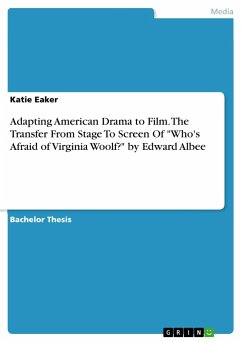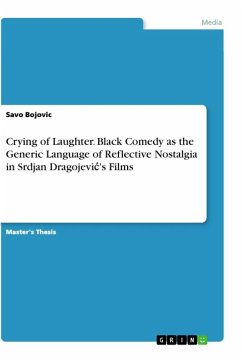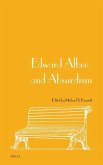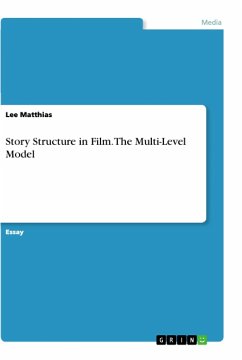Bachelor Thesis from the year 2014 in the subject Film Science, Lake Forest College, language: English, abstract: A study of theater adapted to film post World War II , focusing on the 1966 film Who's Afraid of Virginia Woolf? by Edward Albee.There is a certain kind of ephemeral magic that only exists inside the theater. Audience members shift in their seat in anticipation, the sounds of actors shuffling backstage seeps from under the curtain, the lights dim, the doors close, and all of the sudden the outside world fades away. Reality seems to shift and take new shape as the curtain rises and you are thrust into a different world. When the curtain finally closes, you sit still in your seat, not even noticing the others around you, realizing that if there is truly magic in the world, you've just witnessed it.The role of theater in our society is difficult to define. Theater functions in different ways for different people who bring different backgrounds, experiences and needs. For some people it offers "needed respite, a chance to laugh, and a chance to escape into a healthy fantasy." For others, the theater offers an "intellectual challenge , or a challenge to their imagination which they do not find in the rest of their existence." For some people theater might even serve as a guide for living.Almost every culture around the world and throughout time has had its their own form of drama. Theater and drama has provided an opportunity for each member of the audience to interact with the imaginative minds that created it, to explore ideas and beauty, and to discover new ways of looking at the world. The theater has been key in understanding the minds and hearts of a community or a culture at large since much good theater is comment upon the human condition.








